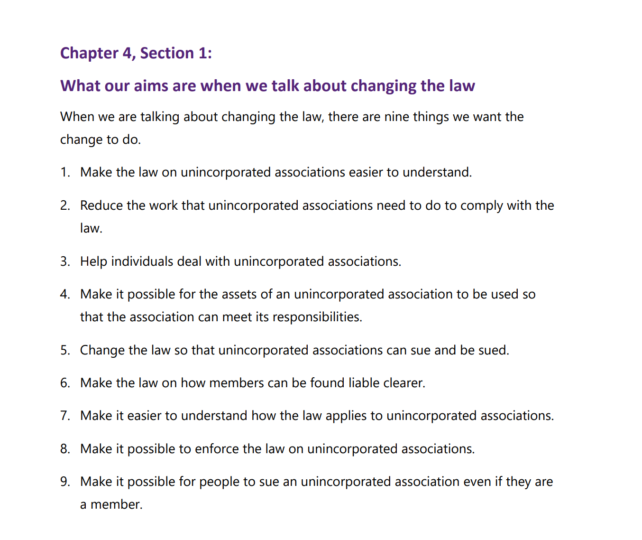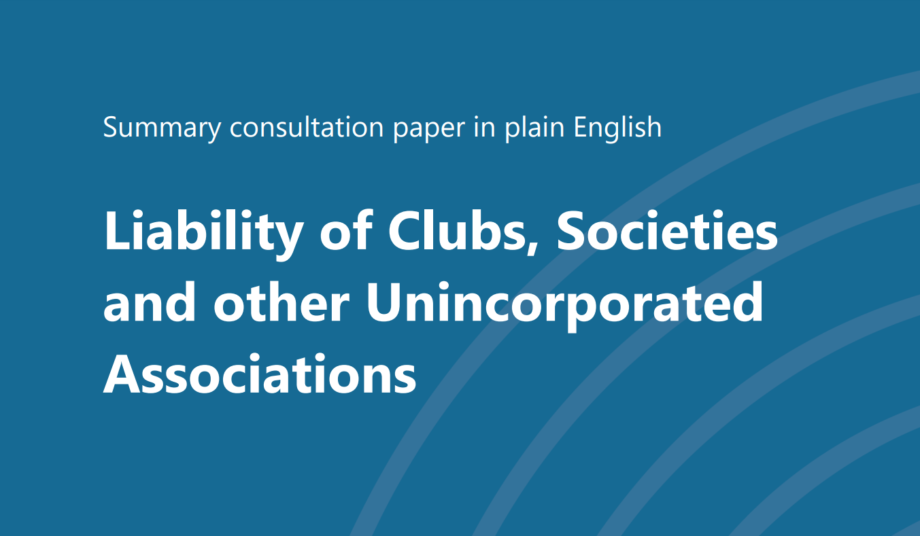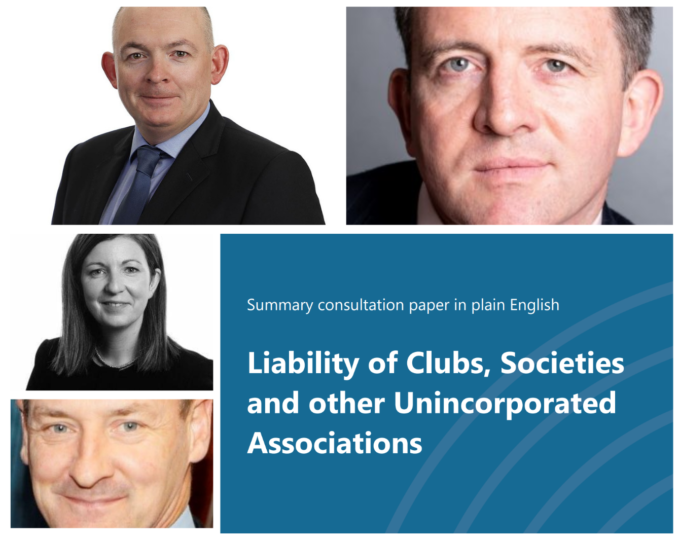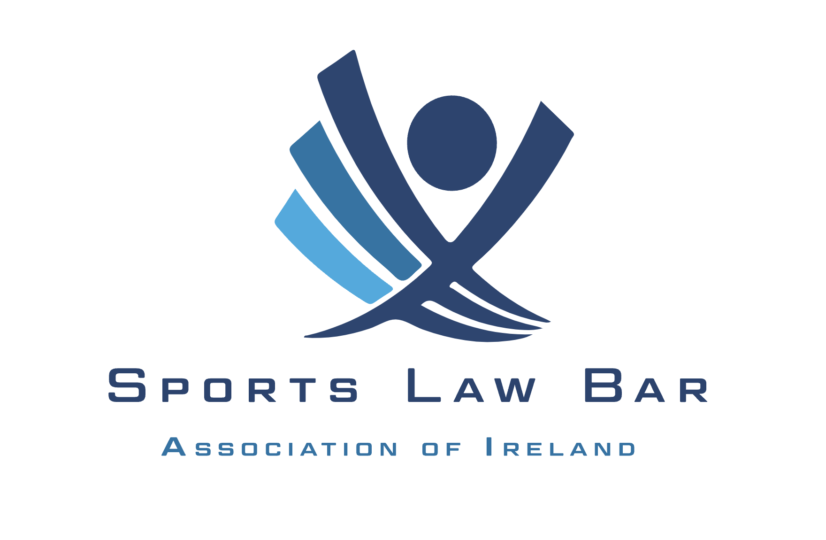
The current consultation from the Law Reform Commission, on The Liability of Clubs, Societies and other Unincorporated Associations, has gone largely unremarked. This is surprising, given that it is one that could affect every parish in the State at one of the most fundamental levels – the organisational structure of local sports clubs.
In advance of a forthcoming public webinar, Tim O’Connor BL examines the issues.
Hickey v McGowan as a starting point.
The core of the Law Reform Commission’s report arises from the Supreme Court’s decision in Hickey v. McGowan, and it is fair to say that the main thrust of the report is aimed at such cases of historical sexual abuse. There can be little doubt that this is a question that must be addressed in some manner, if justice is to to be done.
Overview of Report
As the report stresses, its main focus is, then, on recovery of damages awarded, often on the basis of vicarious liability, against unincorporated bodies. As all practitioners are aware, though, this goes far wider than the cases of historical abuse, because the classic unincorporated body in Irish life is the club, and, above all others, the unincorporated local sports club.

To sum up a wide-ranging and comprehensive consultation paper, the LRC proposal would extend the range of those who can successfully sue a club and remove a barrier to recovery. Indeed, that is part of its stated aims; it expressly lists as objectives in Chapter 4.2 (c) the objective of providing that the assets of an unincorporated association are available to meet its responsibilities (d) the objective of providing that unincorporated associations can be sued in their own names (h) the objective of removing the impediment to suing a club of which you are a member. In short, it is part of the objectives of this Report to make it easier for more people to sue and recover from unincorporated clubs – the clubs that are usually the smallest and with the fewest resources.
The mechanism for this is that the consultation paper proposes that all unincorporated clubs – and, naturally, sports clubs would be some of the leading examples of this, if not already the most common example of such – would have to convert to a different structure.
Model Options

The Paper rejects mandatory incorporation as being “a blunt measure”, and instead has three possible models it discusses as options. Model 1 is registration as a non-profit registered association, which would give separate legal personality on registration. Model 2 would give separate legal personality to unincorporated associations that meet certain specified criteria. Model 3 would not give separate legal personality but would set out how such bodies could be liable, both in civil and criminal terms; much of the content of this model would form the basis of Models 1 and 2.
As it notes, Models 1 and 2 would make it easier to take claims against clubs, members could sue clubs, and they are not means of providing full limited liability. The Paper is very clear that it feels that this should only come with registration as a company, with all the formality and regulatory burden that comes with this. In essence, if the Paper is adopted, no matter what happens, the structure of clubs will change and the liability of clubs will be expanded.
It should be noted that, although the Paper rejects mandatory incorporation, clubs already have the option to become companies, whether limited by shares or by guarantee. Many – quite possibly most – smaller clubs have not done so. For clubs like this, it makes sense to be unincorporated, where the cost of administration outweighs the benefit to them. It is the smallest clubs who can bear least administrative costs, whether that cost is in time or money, or, indeed, both.
This is a pointer to what may be an issue for sports bodies; administration has a cost, and while a company requires most administration, any of these new structures require more administration, but with more liability attached.
Access to litigation by members?
It is settled law that members of an unincorporated club cannot sue that club in tort. The club has no separate legal personality, independent and apart from its members, and the members cannot sue themselves. They may sue on foot of the contractual arrangement that binds them all together in the club, but cannot sue in tort, and above all in personal injuries. This was most recently restated by Stack J. in Brady v. Moore [2022] IEHC 420.
The Paper takes issue with this:
It was suggested by Stack J in Brady v Moore that “if liability were too readily imposed, people who otherwise volunteer their time might be dissuaded from doing so and this would be damaging to the social life and leisure pursuits of a very large proportion of the population”. However, the Commission considers that volunteers who have sustained harm should not have to shoulder the financial cost of the negligent acts of others, purely on the basis that they are both members of the same association.
However, the Civil Law (Miscellaneous Provisions) Act 2011 raised the bar for suing volunteers, including sports bodies, to one of gross negligence, and did so on precisely the basis identified by Stack J. in Brady v. Moore, that is in the public interest that volunteers should not be dissuaded by fear of liability. However, despite, it would seem, taking an opposing view to the policy embodied in the 2011 Act, that significant statutory intervention is not discussed in the LRC Report; indeed, and perhaps unexpectedly, it does not seem to be mentioned at all.
One would have thought it might be of importance in the context, but the LRC does not touch on it in any fashion when discussing liability. It is fair to note, though, that there are no recorded judgments on the 2011 Act as yet.
Public policy has, up until now, been to reduce those who may successfully sue and to raise barriers to this. The Paper, by contrast, explicitly states that one of its aims is “easing the path to litigation.” The objectives of this Paper therefore look like a stark reversal of the policy reflected in the 2011 Act, without it would would seem considering that Act.
Even with this public policy, and the resultant reduced risk, insurance premiums have increased to the point where many clubs are touch-and-go as to whether they can continue. If reduced risk has seen increasing policies, one may state with confidence that increased risk of being successfully sued and the damages recovered will increase those premiums dramatically. The prospect of insurance costs staying down when there is an “easing of litigation” might be somewhat over-optimistic.
Paper could fundamentally alter the nature of Irish sport clubs
Between the administrative burden and structural changes, the apparent clash with existing public policy and legislation on liability and the potential effects on insurance, there is no doubt that this Paper could fundamentally alter the nature of Irish sport clubs.
All of these issues, and others, such as for example the effect on cross-Border sporting bodies, will have to be worked. How that will be done, or even if it will be done at all, remains to be seen.
Join our Panel Discussion – 3rd March
The Sports Law Bar Association, together with the Tort & Insurance Bar are hosting a public seminar on the LRC Paper, which will be of particular interest to club administrators and leaders, sporting bodies and other community groups.
- March 3rd, 2023
- Distillery Building & Online (via Zoom)
- 4:15pm–5:15pm
Chair: The Attorney General, Rossa Fanning SC;
Speakers: Dermot Flanagan SC; Tim O’Connor BL; Aoife Farrelly BL;

Discover our Specialist Bars

The Sports Law Bar Association of Ireland (SLBA) is an all-Ireland association of barristers with specialist sports law knowledge and practices. It aims to increase awareness of sports law and support barristers in providing the most up-to-date advice to sports law clients.
Their aim is to provide relevant continuing professional development seminars, information and public events to better inform barristers and the wider public of these areas of law.
The views expressed above are the author’s own and do not reflect the views of The Bar of Ireland.
